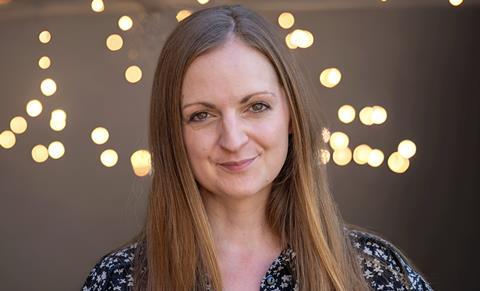Gemma Comber discusses how flexible workplaces are making it possible to balance parental responsibilities and a demanding job
Working in TV while being a parent often feels like navigating two worlds constantly at odds with each other. The long hours, relentless pressure, and unpredictability of our industry often clash with the demands of family life.
For parents, especially single parents, balancing career and home life can feel overwhelming, often taking a toll on mental health.
This article is not just for parents. Many in the industry face the same challenges – juggling long hours, demanding schedules, and personal commitments. But as a single mother, I want to share my journey of striking a balance and finding a way to remain in a career I love while prioritising my children.
I’ve been in post-production for over 16 years and have witnessed the sacrifices colleagues and clients make to balance work and family life.
Our industry demands flexibility, after-hours commitment, and resilience that few other sectors require. Friends outside the industry, with equally successful careers, often look at our work culture and shake their heads in disbelief.
For parents, the challenges escalate. The daily childcare juggle, with school drop-offs, pickups, overtime, illness, school holidays, and travel delays, all creates a relentless balancing act.
Combining all of this with your work responsibilities, and personal well-being, is a battle that can really take its toll.
Despite the challenges, I never lost my passion for post-production.
I first fell in love with it as a teenager, making short films for my media studies A-Level. From there, I pursued a degree in digital film and video, specialising in editing and grading, before working my way up from a runner to online editor.
The buzz of collaborating with clients, solving last-minute challenges, and crafting the final look of a programme was intoxicating. I thrived in the fast-paced, technical, and creative environment.
But everything changed when I became a mother in 2019.
The possibility of long hours and unpredictable schedules within the industry, combined with the commute, and a growing young family outside the city, made the traditional London-based roles untenable for me.
The career I had worked so hard to build felt incompatible with my new reality.
I explored part-time work and freelancing, but childcare costs and inconsistent bookings made these options unsustainable.
When I became a single mother in 2022, the challenges to find a suitable role intensified.
Despite my extensive experience and strong credit list, finding a way to stay in the industry while meeting my children’s needs seemed like an insurmountable task. The industry wasn’t designed for people like me – parents who needed flexibility without compromising their skills or careers.
It was during this difficult time that a friend suggested I reach out to The Finish Line. I’d known the team for years, having worked with some of them early in my career. I decided to reach out.
The response was immediate and encouraging. Zeb, the company’s founder, was passionate about keeping my skills in the industry and understood the value I could bring. The Finish Line offered me a fully remote role as a finishing assistant. With part-time hours that worked for me, I could finally balance work and family life.
The transition wasn’t without challenges. I had to learn DaVinci Resolve, stepping out of my comfort zone after years of working with other tools.
But the team at The Finish Line provided incredible support, and I quickly adapted.
Now I work on QC processes, fixes, changes, delivery and on remote picture finishing projects, collaborating seamlessly with our distributed team, all from the comfort of home. This flexibility hasn’t just benefited me, it’s benefited the company too.
They gained an experienced online editor with a technical background who could contribute immediately. And I gained a lifeline – a way to stay in the industry and continue developing my skills without sacrificing my family or mental health.
It enables me to be the working mother I yearn to be, being present and focused not only for my job, but also for my kids, and alleviating so much of the childcare juggle that comes with other models of similar roles.
My story is just one example of how flexibility in the workplace can make a profound difference. Yet, so many talented individuals are lost to our industry because the traditional model doesn’t accommodate diverse needs.
Whether it’s remote working, part-time roles, job shares, or simply a more flexible eight-hour day, the potential for change is immense.
These adaptations don’t just benefit individuals. They give companies access to skilled talent, lower overheads through remote options, and foster a healthier, happier, more sustainable workforce.
Flexible hours, remote options, and job shares shouldn’t be exceptions, they should be offered as a new standard.
Let’s work together to create an environment where everyone, regardless of their circumstances, can thrive.

Gemma Comber is a finishing assistant at Finish Line





No comments yet